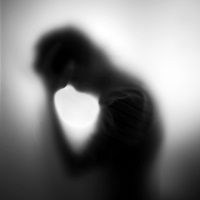Looking Back: A Lesson from the Loss of Robin Williams
A reflection on the fallout from the untimely passing of a beloved celebrity, and what our reactions tell us about how we view depression and suicide.

Last summer and fall, there was no shortage of articles written that explored several facets of the tragic death of actor Robin Williams. Many focused on education about depression and suicide (that’s helpful), some exhorted us to push for advocacy and new treatments (that’s useful too), and some speculated about his diagnosis and treatment, or passed judgment on the meaning of his final act (pointless).
All, in some way, attempted to understand and cope with the unexplainable. That is human. Most of us are wired to order the disordered and make sense of the nonsensical. We look for the reasons why things happen and ignore the biases that distort our conclusions in an attempt to master our fear of the unknown and our ultimate powerlessness. We can understand these motivations and forgive the flawed logic because it is human.
What we can’t understand, unless perhaps we are severely depressed, is suicide. However we may explain it, there seems to be something within us that directs us to avoid injury and illness and preserve our life. I am not referring only to the particularly American denial of death, although certainly there is a culturally bound component that accounts for higher rates of suicide elsewhere in the world. Rather, that there is an intangible force that pushes the non-depressed among us to cling to life even under conditions we might previously have judged unbearable.
Certainly, many have had passing fantasies of suicide to escape pain, or as a trap door out of a seemingly impossible situation. Also common are anxious, intrusive thoughts of death that reflect fear more than wish. But, the actual commitment to a final, undoable life-ending act is so alien to most that it is impossible to truly empathize (not sympathize) with this decision. This contributes to the difficulty of identifying those who will complete suicide. Even psychiatrists, the putative experts on depression, are poor predictors and may not even get the chance to try.
By the diagnostic criteria for depression itself, those most at risk of suicide often isolate themselves from their support networks, go away from rather than towards help, or are unable to muster sufficient energy or hope for change. Physicians do not comb the streets looking for depressed people, nor can they compel people to involuntary treatment unless there is evidence of imminent danger. The law favors the ethical principle of autonomy over beneficence in these cases, and probably rightly so, given the aforementioned predictive difficulties.
Events like Robin Williams’ suicide tend to prompt us to action (ie, “We have to do something!”). I, myself, almost wrote a very different article here about the approach to treatment of refractory depression and the rapid anti-suicide properties of intravenous ketamine. However, no matter how effective and rapid the available treatment, no matter how strong the support network, and no matter how zealous the awareness campaign, some people will go ahead and kill themselves anyway. We must deny this all along and try our best nonetheless.
But at least for a moment, perhaps we should follow this paradoxical advice: “Don’t just do something, stand there.” We should accept our relative powerlessness to control people, and mourn the losses.